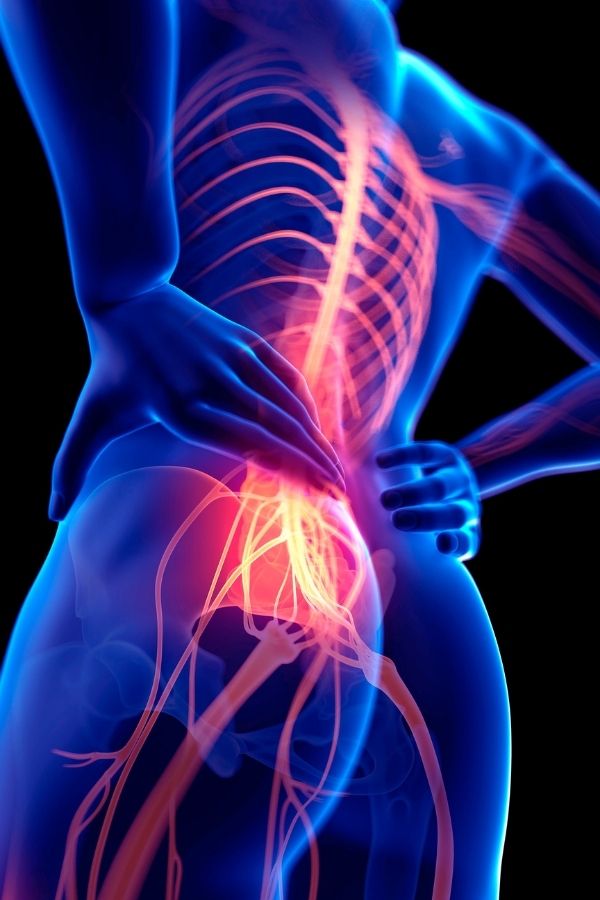

Most of us will experience some form of Stress or Anxiety at some point in our lives. Stress can even be helpful at times, a natural mental and physical response to demanding situations, which can help improve our focus and performance. But living with high levels of stress over a prelonged period of time can cause anxiety, depression and have a negative impact on our overall health.
According to a recent UK-wide study by the Mental Health Foundation, a Whopping three quarters of adults (74%) have at some point over the past year felt so stressed they felt overwhelmed or unable to cope.
With so many of us dealing with potentially high levels of stress, it is important to recognise when it has started to impact our physical wellbeing. Short term stress can often be attributed to our circumstances, and therefore usually dissipates as we move through the challenging time. But when you find yourself feeling constantly stressed, say over a period of more than a few months, it's time to recognise it as a more chronic problem.
Mental Health Foundation Director, Isabella Goldie, has said,
"Stress is a significant factor in mental health problems including anxiety and depression. It is also linked to physical health problems like heart disease, problems with our immune system, insomnia and digestive problems."
Chiropractic treatment can be hugely beneficial in the treatment of the symptoms of stress. It's important to note that your Chiropractor can't treat the cause of your stress, but Chiropractic care can certainly help to treat associated symptoms such as muscle tension, pain, headaches, and poor sleep.
.jpg)
The way our bodies respond to a percieved threat is pretty amazing! It's known as the flight-or-fight response...a healthy type of stress that will get us through a difficult situation.
When you encounter a perceived threat — such as a car unexpectedly bearing down on you as you cross the road — your hypothalamus, a small region at the base of the brain, sets off an alarm system in your body. Through a combination of nerve and hormonal signals, this system prompts your adrenal glands to release a surge of hormones, including adrenaline and cortisol.
Adrenaline increases your heart rate, elevates your blood pressure and boosts your energy supplies. Cortisol, the primary stress hormone, increases sugars (glucose) in the bloodstream, enhances your brain's use of glucose and increases the availability of substances that repair tissues.
Cortisol also curbs functions that would be nonessential or detrimental in a fight-or-flight situation. It alters immune system responses and suppresses the digestive system, the reproductive system and growth processes. This complex natural alarm system also communicates with the brain regions that control mood, motivation and fear.
The body's stress-response system is usually self-limiting. Once a perceived threat has passed. Hormone levels will return to normal, adrenaline and cortisol levels drop off again, your heart rate and blood pressure return to baseline levels, and other systems resume their regular activities.
When we expereience persistent and ongoing stress it takes a toll on our bodies. The result is often pain, anxiety, irritability, and depression.
.jpg)
.jpg)
Chronic stress often results in pain, which in turn causes stress. It can become a viscious cycle. The pain can lead to irritability and other mood issues, clouded thought processes, and an inability to focus. You may feel unable to perform what used to be everyday tasks or participate in activities you used to enjoy (which also helped alleviate your stress).
Muscle pain and tension related to stress is most commonly flet in the following areas of the body:
Regular chiropractic treatments work to decrease pain and relax muscles. These benefits extend to improved quality of life, further reducing anxiety and stress.

The central nervous system (CNS), responsible for your body’s response to stress, also benefits from chiropractic treatment. Your CNS helps regulate mood as well as full-body health, meaning that a healthy central nervous system helps improve overall health and wellness.
At its very foundation, Chiropractic helps improve nervous system function by making adjustments to the spine. Over time, more and more studies are proving that it is extremely effective and as a result many health conditions are improved and even healed completely.
Chiropractic adjustments open the pathways of the nervous system allowing the information to flow unobstructed. And it goes far beyond just the spinal column; Chiropractors may adjust the arms, legs, neck, and hips in addition to the spine which all work together to provide a healthy, functioning nervous system.
.png) You can book a FREE telephone consultation with one of our Chiropractic team or call the clinic on 0117 942 0200 to make an appointment
You can book a FREE telephone consultation with one of our Chiropractic team or call the clinic on 0117 942 0200 to make an appointment